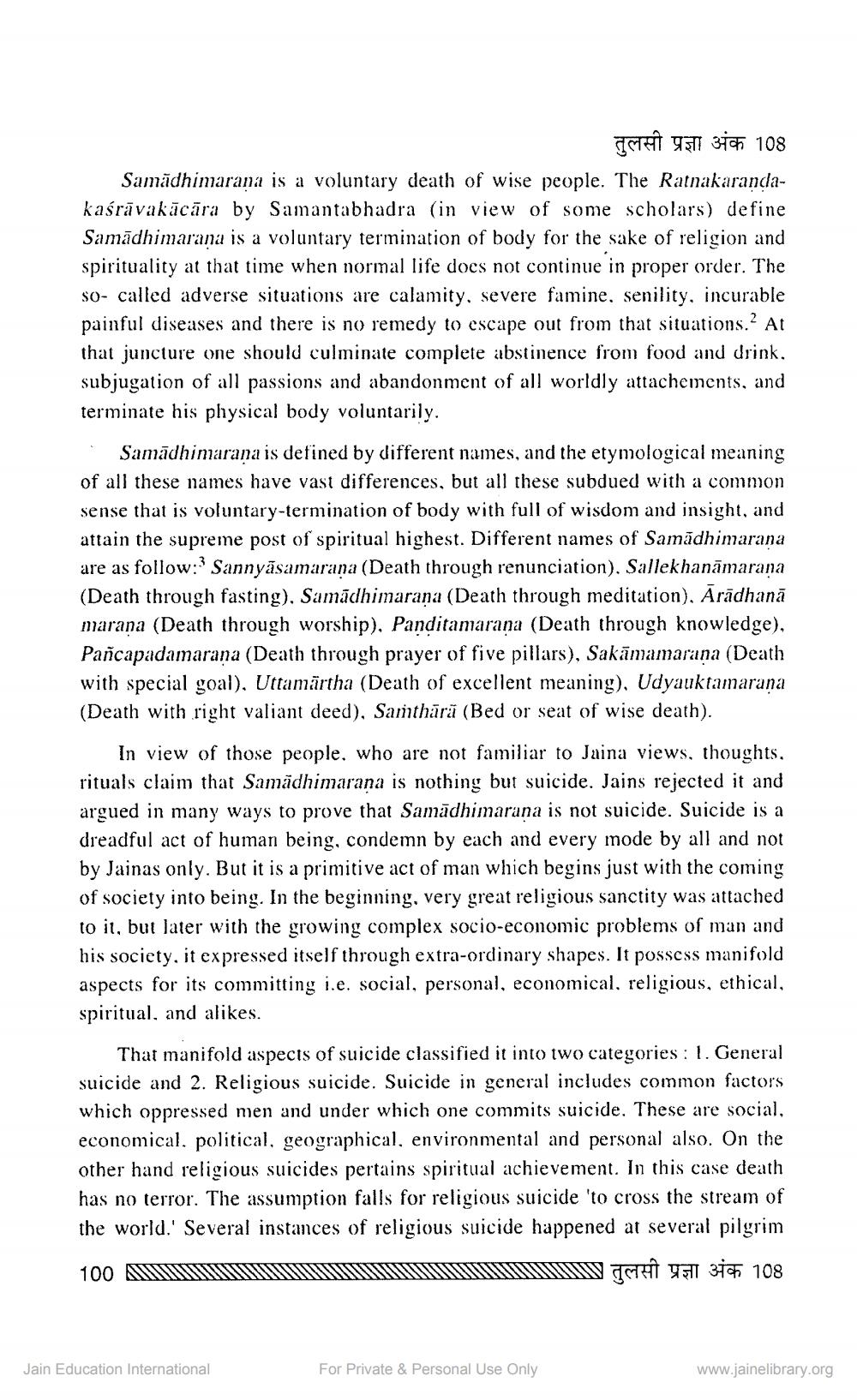________________
IST YFI 3ich 108 Samădhimarana is a voluntary death of wise people. The Ratnakarandakasravakācāra by Samantabhadra (in view of some scholars) define Samādhimarana is a voluntary termination of body for the sake of religion and spirituality at that time when normal life does not continue in proper order. The so-called adverse situations are calamity, severe famine, senility, incurable painful diseases and there is no remedy to escape out from that situations. At that juncture one should culminate complete abstinence from food and drink, subjugation of all passions and abandonment of all worldly attachements, and terminate his physical body voluntarily.
Samādhinarana is defined by different names, and the etymological meaning of all these names have vast differences, but all these subdued with a common sense that is voluntary-termination of body with full of wisdom and insight, and attain the supreme post of spiritual highest. Different names of Samădhimarana are as follow: Sannyāsamarana (Death through renunciation). Sallekhanāmarana (Death through fasting). Samādhimarana (Death through meditation), Arādhanā marana (Death through worship), Panditamarana (Death through knowledge), Pañcapadamarana (Death through prayer of five pillars), Sakāmamarana (Death with special goal), Uttamārtha (Death of excellent meaning), Udyauktamarana (Death with right valiant deed), Samthärä (Bed or seat of wise death).
In view of those people, who are not familiar to Jaina views, thoughts. rituals claim that Samadhimarana is nothing but suicide. Jains rejected it and argued in many ways to prove that Samādhimarana is not suicide. Suicide is a dreadful act of human being, condemn by each and every mode by all and not by Jainas only. But it is a primitive act of man which begins just with the coming of society into being. In the beginning, very great religious sanctity was attached to it, but later with the growing complex socio-economic problems of man and his society, it expressed itself through extra-ordinary shapes. It possess manifold aspects for its committing i.e. social, personal, economical, religious, ethical, spiritual, and alikes.
That manifold aspects of suicide classified it into two categories: 1. General suicide and 2. Religious suicide. Suicide in general includes common factors which oppressed men and under which one commits suicide. These are social, economical. political, geographical, environmental and personal also. On the other hand religious suicides pertains spiritual achievement. In this case death has no terror. The assumption falls for religious suicide 'to cross the stream of the world.' Several instances of religious suicide happened at several pilgrim 100 M
W WWW IM WET 317, 108
Jain Education International
For Private & Personal Use Only
www.jainelibrary.org




